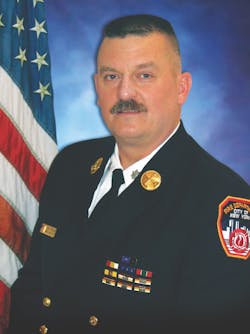I travel frequently to talk to fire service folks from every corner of the country. I still am amazed at how many departments don’t have established, documented and supervised training programs. “Established” means that it’s an element of the department’s organization. “Training” is set up and monitored by the department.
I know that plenty of excellent company officers, both career and volunteer, spend lots of time conducting training for their firefighters or shift, but what about the other shifts? What about the other officers?
Fire departments—meaning the fire chief and/or the other administrative people—are required to (not urged to, not should) provide proper and effective training to their firefighters and officers.
What does an excellent training program look like? (Yes, “excellent”! It’s hard to believe that anyone would consider a training program of any other description.)
Volunteer departments
Just like career departments, no two volunteer departments are exactly alike. Some small, rural volunteer companies cover large geographic areas and handle, maybe, fewer than 100 calls per year. That isn’t busy, but just like every other department everywhere, every single run is a call for help from someone that must be answered. How often should this small company train? I don’t see how a once-a-week drill night cannot be conducted. Once a week. That’s only 52 per year—with holidays and other occasional interruptions, probably fewer.
I don’t know how many topics or evolutions can be conducted in these weekly training events, but the number is considerable. Even if the area and community that are protected primarily are residential structures, plenty of important skills must be mastered.
Career departments
Career departments, where firefighters are on duty in the firehouse, vary in size, staffing and frequency of alarms, but the same requirement that exists for volunteer departments exists for career departments. Firefighters and company officers who respond to fires and emergencies must possess the skills and abilities to get those jobs done quickly and efficiently. The lives of the people who live, visit and work in the community and the property that they own and the homes that they live in are protected by the firefighters. These folks deserve to have firefighters who have a high skill level. This isn’t a debatable nor a negotiable item.
How often should career firefighters train? Certainly, every time that they are on duty. An hour or more of training during a 24-hour shift is a minimum.
What if your work chart is day shifts and night shifts on a rotating basis? Then you should train every shift.
If this is starting to sound like too much for you, then you’re reading the wrong column. If you spend more time sitting in a big recliner in front of a big-screen TV than you spend on the apparatus floor training with tools and equipment, then you are in the wrong job.
There’s more!
For those who have an on-duty chief or for those who are that chief, let’s say a battalion or district chief, how should training on your shift be supervised or monitored?
The chief could call E-4 at 7 a.m. and ask the officer when they will be training and simply stop over at that time, but what about the other stations or companies? If the chief doesn’t call, I guess they figure out that the chief isn’t coming, and, maybe, they won’t train that day.
A quick and easy process for ensuring that all of your companies train—which requires no phone calls or other preplanning—is to establish and enforce a training period for your fire companies. Let’s say, for a 24-hour shift that starts at 7 a.m., the companies are informed that the officer will conduct training at 2 p.m. for one hour. This certainly is an easy assignment for the company officer, but it’s even easier for the chief. With this rule in place, the chief can stop at any company at 2 p.m. and expect to find a training event underway.
What the people deserve
With a little encouragement and a few administrative adjustments, you can bump up your department’s training to high-level tactical preparation. Go get ’em!
About the Author
John J. Salka Jr.
Battalion Chief
JOHN J. SALKA JR., who is a Firehouse contributing editor, retired as a battalion chief with FDNY, serving as commander of the 18th battalion in the Bronx. Salka has instructed at several FDNY training programs, including the department’s Probationary Firefighters School, Captains Management Program and Battalion Chiefs Command Course. He conducts training programs at national and local conferences and has been recognized for his firefighter survival course, “Get Out Alive.” Salka co-authored the FDNY Engine Company Operations manual and wrote the book "First In, Last Out–Leadership Lessons From the New York Fire Department." He also operates Fire Command Training, which is a New York-based fire service training and consulting firm.

